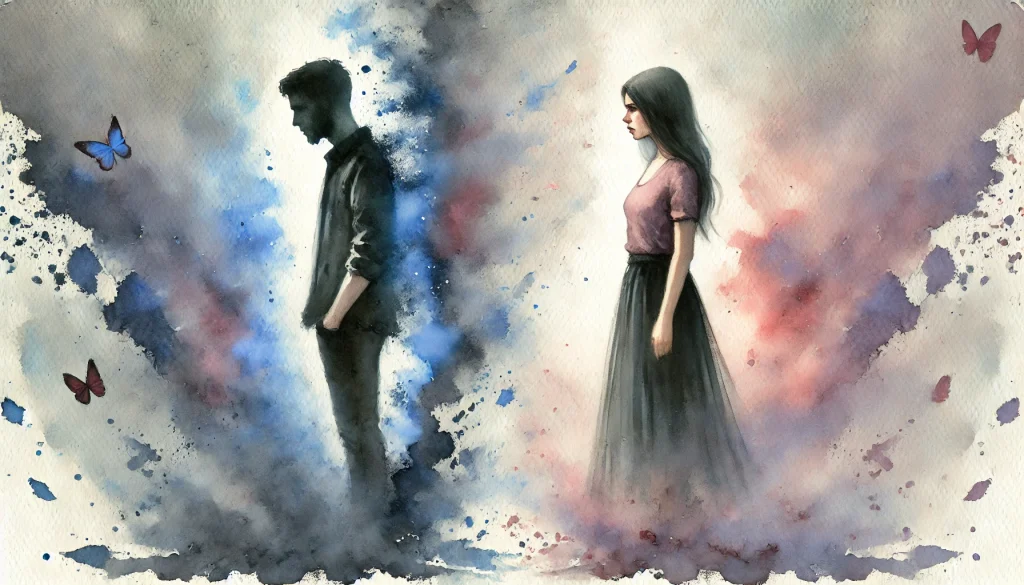
Depression is something many of us have either experienced ourselves or seen in someone close to us. It’s a condition that touches all parts of life, and one of the areas it can hit the hardest is our relationships. Whether it’s with a partner, family member, friend, or even a co-worker, depression often puts a strain on how we connect with others, and it can sometimes feel like an invisible wall between us.
When we’re feeling depressed, it’s as if the world around us becomes muted. We might lose interest in activities we used to enjoy or struggle with finding the energy to engage with those we care about. This lack of energy and motivation can sometimes be misinterpreted by others as disinterest or even rejection. People close to us might not understand why we suddenly seem distant or why we’re no longer participating in conversations or plans like we used to.
It’s common for someone dealing with depression to withdraw from those around them. We may avoid social situations, skip gatherings, or cancel plans because we just don’t feel up to it. This can lead to misunderstandings and hurt feelings from the people who don’t know what we’re going through. They might think we’re ignoring them or that we no longer care about the relationship, when in reality, we might be struggling with our own inner battles and finding it hard to keep up.
One of the hardest things for both the person experiencing depression and the people around them is the communication barrier it creates. It can be challenging for us to explain what we’re feeling, and it can be equally difficult for others to understand what’s going on in our minds. We might not have the words to describe the sadness, emptiness, or fatigue that weighs us down, and that can leave loved ones feeling confused or helpless. Sometimes, they might even try to “fix” us or offer advice that, while well-meaning, can feel frustrating or irrelevant.
Depression can also change how we see ourselves and our worth within relationships. When we’re in that dark space, we might believe we’re a burden to others, even if they tell us otherwise. This can lead us to pull away, fearing that we’ll drag others down with us or make their lives harder. We might isolate ourselves to avoid being a “problem,” even though the people who care about us often just want to help.
For example, take Sarah, who has been in a committed relationship for several years. Lately, Sarah has been feeling overwhelmed by her depression, and it’s affecting her connection with her partner. She’s exhausted all the time, finds it hard to express her emotions, and often feels like she’s failing in the relationship. Her partner, not fully understanding what Sarah is going through, begins to feel neglected and frustrated. He misses the way things used to be when they spent more time together and shared laughs over small things. Without realizing it, Sarah’s partner begins to feel hurt, interpreting her distance as disinterest or coldness.
As time passes, the strain on their relationship grows. Sarah feels guilty for not being able to “snap out of it” and be the partner she wants to be. Her partner, on the other hand, starts to feel lonely and wonders if Sarah even loves him anymore. This is a common scenario when depression enters the picture. The emotional disconnect doesn’t mean that love or care has disappeared, but depression can cloud the way we give and receive affection.
One of the tough aspects of depression is that it can also affect our moods and reactions. We might become irritable or short-tempered with those we love, even though we don’t mean to. Small things that wouldn’t have bothered us before suddenly feel overwhelming, and we might lash out or withdraw because we don’t know how else to handle the emotions building up inside us. This can cause tension in our relationships, as others might feel like they’re walking on eggshells around us, not knowing when we might snap or isolate.
It’s important to remember that depression not only affects the person experiencing it but also those who care about them. Friends, family, and partners often want to be supportive, but they may feel unsure about how to help. They might feel frustrated when their efforts don’t seem to make a difference or when they can’t “fix” what’s wrong. Over time, this can lead to feelings of distance, and in some cases, relationships might become strained or even break down because of the impact depression has on communication and connection.
For those of us who are dealing with depression, the way it affects our relationships can add to the weight of what we’re already carrying. We might feel guilty or ashamed for the toll it takes on others, even though depression is not something we choose or control. And for those who love someone with depression, it can be heartbreaking to watch them struggle and feel powerless to make it better. Increased awareness about how depression influences relationships can help both sides understand that what’s happening isn’t personal or permanent. The more we understand about depression and its effects, the better equipped we are to handle these challenges and maintain the bonds that are important to us.
If you or someone you love is struggling with depression, you don’t have to go through it alone. At My Practice Counselling Melbourne, Jonathan Riley and our team are here to help. Reach out today to start your journey toward a healthier, happier life. Contact us now to book an appointment.